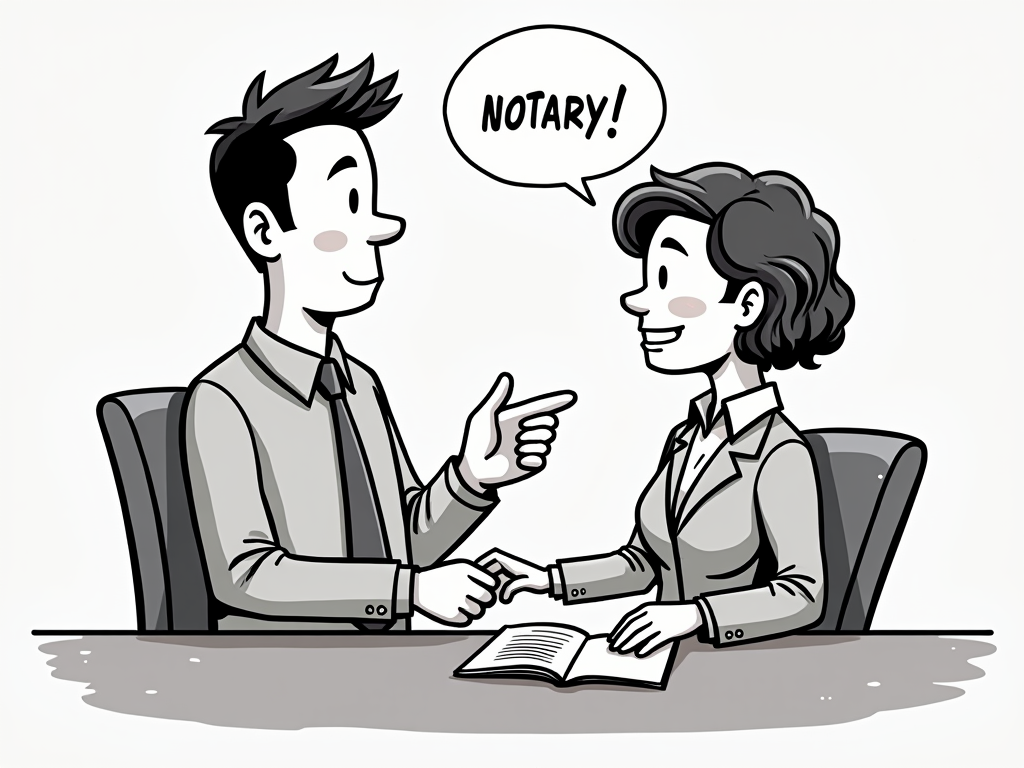
UAE Notary Public Services: A Comprehensive Guide to Locations, Fees and Requirements
Reading time: 12 minutes
Table of Contents
- Introduction to UAE Notary Public Services
- Types of Notary Services in the UAE
- Key Notary Public Locations Across Emirates
- Notary Public Fees Structure and Payment Methods
- Document Requirements and Preparation
- Step-by-Step Notarization Process
- Common Challenges and Solutions
- Real-World Case Studies
- Digital Notary Services: The New Frontier
- Your Document Legalization Roadmap
- Frequently Asked Questions
Introduction to UAE Notary Public Services
Navigating the UAE’s notary public services can feel like deciphering a complex legal puzzle, especially for expatriates and business owners. Whether you’re establishing a business, transferring property, or handling personal legal matters, understanding the notarization landscape is essential for compliance and legal validity.
In the UAE, notary public services hold significant weight in validating documents for both local and international use. Unlike some Western countries where notaries operate independently, UAE notary services are predominantly governed by the Ministry of Justice and maintain strict protocols that align with both civil law traditions and Sharia principles.
The straightforward truth is this: proper notarization isn’t just a bureaucratic hurdle—it’s your protection against future legal complications and document rejections that could delay critical business or personal matters.
Types of Notary Services in the UAE
Standard Notarization Services
The UAE offers a comprehensive range of notarization services to meet various legal requirements:
- Power of Attorney (POA) Documentation – Authorizing representation for business, property, or personal matters
- Contract Authentication – Validating agreements between parties
- Declaration Certification – Formalizing personal or business statements
- Document Translation Authentication – Verifying translated documents for official use
- Corporate Document Certification – Authenticating company formation documents, board resolutions, and memoranda
Specialized Notarization Services
Beyond standard services, specialized notarization is available for:
- Real Estate Transactions – Property sale agreements, lease contracts, and mortgage documents
- Marriage and Divorce Documentation – Including prenuptial agreements and divorce settlements
- Will Authentication – Both Islamic and non-Islamic wills for asset protection
- Inheritance Documents – Succession certificates and inheritance declarations
Pro Tip: Complex business transactions often require multiple notarization types. Consulting with a local consultancy dmcc before initiating the process can save significant time and prevent document rejection.
Key Notary Public Locations Across Emirates
Dubai Notary Public Offices
Dubai offers multiple strategic locations for notary services:
- Dubai Courts Main Branch – Located in Al Garhoud, this flagship facility handles all notary services with extended hours
- Al Barsha Notary Office – Convenient for residents in New Dubai areas
- Al Twar Centre – Services the Deira side of Dubai
- DIFC Wills Service Centre – Specialized in non-Muslim wills and inheritance planning
Abu Dhabi Notary Services
The capital offers accessible notary services through:
- Abu Dhabi Judicial Department – Main branch in Al Madina Al Riyadiya
- Al Shahama Notary Office – Servicing northern Abu Dhabi
- Al Ain Notary Office – For residents of Al Ain and surrounding areas
Northern Emirates Options
Sharjah, Ajman, Ras Al Khaimah, Fujairah, and Umm Al Quwain each maintain notary offices typically located within their respective court complexes, with Sharjah offering multiple branches for greater accessibility.
Quick Scenario: Imagine you’re establishing a manufacturing business in Sharjah while residing in Dubai. Instead of making multiple trips between emirates, consider using Dubai notary services for all your documentation, as they’re recognized throughout the UAE—saving you valuable time and coordination efforts.
Notary Public Fees Structure and Payment Methods
UAE notary fees follow a structured approach based on document type rather than page count, a significant departure from Western practices. Understanding this fee structure prevents budget surprises during complex legal processes.
| Document Type | Standard Fee (AED) | Express Service (AED) | Processing Time | Additional Notes |
|---|---|---|---|---|
| General Power of Attorney | 100 | 200 | Same day/1-2 hours | Additional fee for translation if needed |
| Special Power of Attorney | 200 | 400 | Same day/1-2 hours | For specific transactions like property |
| Contract Authentication | 200-500 | 400-800 | 1-2 days | Varies based on contract value |
| Declaration Certification | 100 | 200 | Same day | Personal attendance required |
| Will Registration (Non-Muslim) | 2,500-3,500 | N/A | Appointment-based | DIFC or Abu Dhabi specialized service |
Payment methods include credit/debit cards at all government notary offices, with cash accepted at most locations. Corporate clients can arrange for prepaid accounts with the Ministry of Justice for high-volume transactions.
Key insight: Always factor in ancillary costs such as translation (approximately AED 80-150 per page), typing services (AED 30-50 per document), and possibly legal consultation if documents need modification to meet UAE standards.
Document Requirements and Preparation
Essential Documentation Checklist
Proper preparation is the cornerstone of efficient notarization. For all notary services, these fundamental documents are required:
- Original Emirates ID for UAE residents or passport for visitors
- The original document requiring notarization
- Any supporting documents referenced in the main document
- Arabic translation of non-Arabic documents (from a legally recognized translation service)
Specialized Document Requirements
Different transactions demand additional specific documentation:
- For Business Documents: Valid trade license, company registration documents, and shareholder identification
- For Property Transactions: Title deed copies, initial sale agreements, and property layout plans
- For Personal Legal Matters: Marriage certificates, birth certificates, or other civil documentation
Remember, UAE notaries adhere strictly to documentation requirements—incomplete submissions are immediately rejected, forcing you back to square one in the process.
Step-by-Step Notarization Process
Document Preparation Success Rates
Data based on 2022 survey of 500 UAE residents using notary services
Before Your Appointment
- Document Collection: Gather all required documents and supporting materials
- Translation: Arrange for legal translation of non-Arabic documents
- Verification: Check all names match exactly across all documents
- Scheduling: Book an appointment where available (mandatory at DIFC and some Abu Dhabi offices)
During Your Visit
- Queue Management: At arrival, take a number from the digital queue system
- Preliminary Check: A service officer will verify your documents before you see the notary
- Notary Review: Present your case to the notary who will examine documents and ask clarifying questions
- Signature and Verification: Sign documents in the notary’s presence
- Fee Payment: Pay the applicable fees at the cashier counter
- Document Collection: Receive your notarized documents
Practical Roadmap: For first-time users, allocate 2-3 hours for the entire process, even when appointments are pre-scheduled. This buffer accommodates unexpected delays and supplementary documentation requests.
Common Challenges and Solutions
Document Rejection Issues
Document rejection is the most common hurdle in UAE notarization. Primary reasons include:
- Name Discrepancies: Even minor spelling variations between documents can cause rejection
- Incomplete Information: Missing details or unclear statements in POAs
- Improper Translation: Translations not completed by certified translators
Solution: Have documents pre-checked by a legal consultant or the typing center staff before submission. For name discrepancies, carry additional identity documents that can help establish name variations.
Timing and Appointment Challenges
Long wait times and limited appointment availability plague certain notary offices, particularly in Dubai and Abu Dhabi.
Solution: Consider these alternatives:
- Visit offices in less busy northern emirates for urgent matters
- Utilize early morning slots (7:30-8:30 AM) when offices typically have shorter queues
- For businesses, engage a local consultancy dmcc with notary service connections
Real-World Case Studies
Case Study 1: Real Estate Developer’s Experience
ACME Development faced a critical deadline for notarizing 28 sale agreements for a new residential project in Dubai Marina. Their initial approach—sending a junior staff member with all documents—resulted in rejection due to improper company representation authorization.
Solution Implemented: ACME engaged a specialized legal consultant who:
- Prepared a specific POA for the document handler
- Pre-verified all documentation with notary office staff
- Scheduled an appointment during a lower-volume period
- Ensured all director signatures were properly witnessed
Outcome: All 28 agreements were successfully notarized in a single day, allowing property registrations to proceed on schedule and preventing costly project delays.
Case Study 2: Expatriate Estate Planning
The Jensen family, British expatriates with significant UAE assets, needed to establish wills that would be recognized both in the UAE and the UK. Their initial approach of using UK-prepared will templates was rejected by UAE authorities.
Solution Implemented:
- Registration with the DIFC Wills Service Centre
- Preparation of UAE-compliant will documents with dual-language provisions
- Asset-specific documentation for UAE real estate holdings
Outcome: Their wills were successfully registered, providing proper asset protection across jurisdictions and peace of mind regarding inheritance according to their wishes rather than Sharia law provisions.
Digital Notary Services: The New Frontier
Current Digital Implementations
The UAE has begun implementing digital notary services, though availability varies by emirate. Dubai leads with the most comprehensive online options:
- Virtual Notary Services: Available for certain document types through the Dubai REST app
- Pre-verification Systems: Document screening before physical appointments
- Online Appointment Booking: Available across most emirates
Future Developments
According to Tarish Eid Al Mansoori, Director General of Dubai Courts, “By 2025, we aim to digitize 95% of notary services, reducing physical visits and processing times by 70%.” Upcoming innovations include:
- Blockchain-based document verification
- AI-powered document preparation assistance
- Remote notarization through secure video conferencing
For now, even with digital advances, most complex transactions still require in-person verification, particularly for first-time users and high-value transactions.
Your Document Legalization Roadmap
Navigating UAE notary services needn’t be overwhelming when approached systematically. Here’s your actionable roadmap:
- Assessment & Planning: Determine exactly which documents need notarization and their specific requirements
- Document Preparation: Gather all supporting documents and arrange professional translations
- Professional Review: Have documentation pre-checked by a legal consultant or typing office
- Strategic Timing: Choose less busy periods (mid-month, early mornings) for your visit
- Post-Notarization Actions: Determine if additional legalization is needed (Ministry of Foreign Affairs, embassies) for international use
Remember, the UAE’s legal landscape continues evolving rapidly. What works today may change tomorrow as digitization and procedural updates occur. Staying informed through official channels or maintaining a relationship with a local consultancy dmcc ensures you’re always working with current requirements.
Have you considered how proper document preparation might not just save time but actually enhance your legal protection in the UAE? Take a moment to review your existing documents—are they properly notarized and ready to withstand legal scrutiny if needed?
Frequently Asked Questions
Can tourists use notary public services in the UAE?
Yes, tourists can access notary services in the UAE with their original passport as identification. However, certain services like property transactions may require additional documentation or even residency status. For complex matters, tourists may need to demonstrate a legitimate connection to the UAE, such as property ownership or business interests. Services for tourists typically carry a premium fee structure compared to resident rates.
What’s the difference between notarization and attestation in the UAE?
Notarization in the UAE involves official verification of document authenticity and signatures by a government-appointed notary public. Attestation, however, is an additional step where the document receives further verification from other government departments or foreign embassies to be recognized internationally. Think of notarization as the first step in document legalization and attestation as the process that makes that document recognized across borders and jurisdictions.
Can I notarize documents in Arabic if I don’t speak the language?
You can notarize Arabic documents without speaking Arabic, but you must understand what you’re signing. UAE notaries require either that you demonstrate understanding of the document or bring a legal translator. Most notary offices provide translation services for an additional fee. For important legal matters, it’s highly recommended to have your own trusted translator review the document before notarization to ensure it accurately reflects your intentions.

Article reviewed by Oliver Brown, Venture Capital Veteran | Funding the Next Big Disruptors, on April 17, 2025






